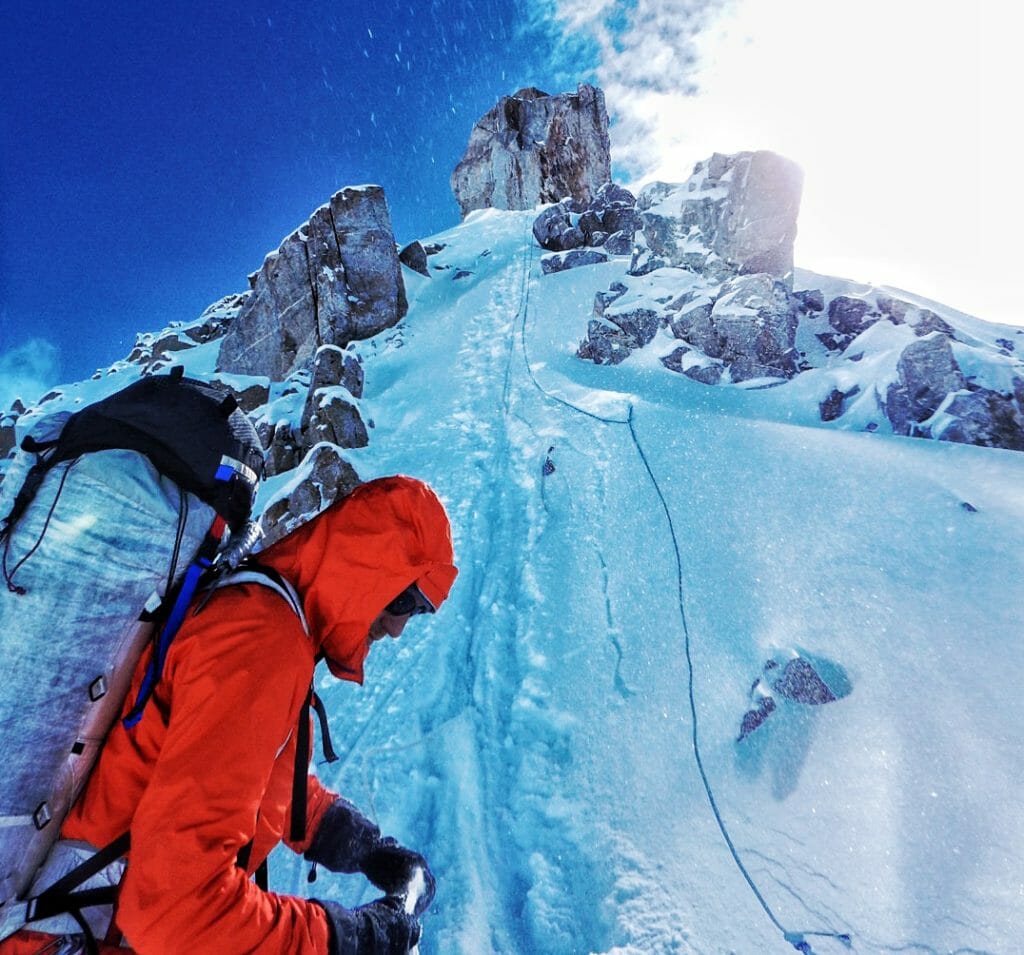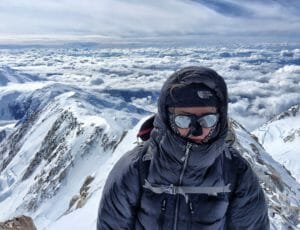In 2001, two Venezuelan climbers reached the summit of Mount Everest, inspiring the then-14-year old Giselle Cesin to become the first Venezuelan woman to reach the top of the world. Her hopeful journey began this year with success on Denali.
Giselle Cesin’s path to Denali is unique. She’s been an endurance athlete her whole life—swimming, cycling, triathlons, marathons, and numerous Ironman events—though never a climber, until recently.
The mountains have always drawn her in, but “Venezuela has limited mountaineering,” says Giselle. “We have rock mountains … not the kind of Denali-like mountains with big glaciers and ice. The only mountain that we have with a glacier it is so small right now that you can pass the glacier in 15 minutes.”
On top of geographic limitations, she had major heart surgery, preventing her from going to high altitude, which delayed her mountaineering dreams for many years.
In September 2015, though, her doctor cleared her for high-altitude mountaineering. That’s when she started to receive coaching from Steve and Scott. “They turned me from a triathlete into a mountaineer.” And quickly, too: A few months into her new training plan, Giselle made a trip to Ecuador to climb 5,000-meter glaciated volcanoes. “It was my first big mountains,” she says.
While Giselle is no stranger to having a coach and training all-out, she says, “I have done 20-kilometer swims in cold oceans and other very difficult things in my life, but mountaineering is for me the most challenging sport I have ever tried.”
She notes that there’s a stark difference between pushing yourself in a closed course versus on wild peaks. “In an Ironman you spend 10 hours surrounded by a lot of people cheering your name. They will give you food. And after you go to the finish line, you get a nice medal, you go take a shower, and celebrate. In mountaineering, after 10 or 12 days out, and going for almost 12 hours each day, you get to your tent and you gotta work to make, like, snow walls. There’s no comparison.”

While she’s never taken much of a DIY approach to training, she says that the Uphill Athlete coaching is huge since she’s new to mountaineering.
“It’s completely different than training for a marathon, for example, where you’re going to go out and leave everything you have on the track. When you’re training for a mountain, you’ve got to train to be able to be fit longer, to go on and on and on, and not just for a period of 3 hours.” There’s a stigma, she says. “It might be something new to get a coach to get fit for mountains, because people feel like ’You just go to the mountains and you get fit.’ ” But after working with Scott and Steve, she says, “I think it’s far more than that.“
To get ready for Denali, Scott and Steve had Giselle focus on three types of regularly scheduled training. She’d run for 1–2 hours at a time, hike 2,000–3,000 feet up a local mountain outside Caracas (often with a weighted pack), and then there was the strength and circuit training in a gym. At one time, she says Scott had her doing a workout geared toward training Navy SEALs.
“Scott is really a nerd,” she says. “He would know all of my heart rate information and see all of my GPS tracks from my workouts. And he really knows how to manage that. The one time I felt really, really tired on a scheduled run, Scott knew to have me take a three-day rest to recover. It’s so perfectly monitored that I never got to the point of pushing too far.”
She says that despite the difficult training, which prepared her for long days on the mountain, Denali was still “way harder.” Moments like “having a 50 mph wind on your face while trying to ascend a fixed rope” or “being in a winter camp for two weeks” separate the preparation from the real thing.
In all, her June ascent of Denali ascent took 13 days, which included five days spent sitting out storms. “We’d often do single carries to the next, higher camp,” something she attributes to all of the workouts leading up to the expedition. Many of the days on the mountain were in poor weather and were “8-, 9-, 10-, even 12-hour days,” but she says her mind and body never tired. “It was tough, but I loved every minute of it.”
In particular, she recalls one incredible moment high on the mountain. A good mountaineering friend called her two days before she flew to Alaska, telling her, “Giselle, if you make it to the summit, you will you be first Venezuelan woman to reach the top of Denali.” Now, as she approached the final steps to the tallest point in North America, those words played through her head.
“Knowing that my country is going through a really difficult time politically and economically, I knew this would be a great gift for my people,” she says. “So I said to Vince, ‘Please, get me my flag!’ I started crying and hugging the flag as I kneeled on the summit. It was the moment of my life.”

Reflecting on her time climbing Denali, she was also affected by the great sense of community and camaraderie on the mountain. “It is amazing to see human beings—because usually we see countries fighting each other all the time—from all over the world, all in one place for the love of the mountain, and how a mountain can unify people into helping each other get to the top and stay safe. I’d never seen that before.”
Post-Denali, after just one week at home, she says there’s no pain after the climb. “Physically I feel so good. I said, ‘Scott, I really want to run. I feel recovered. I feel great! It’s been a week and I feel ready to start training again.’ ” And, indeed, Giselle shows no signs of slowing down. Two weeks after Denali, she’ll be climbing Bolivia’s high peaks. After that, it’s Ecuador in October, Aconcagua in December, Ouray in February, and in April, she says, “I’m going to Everest.”


